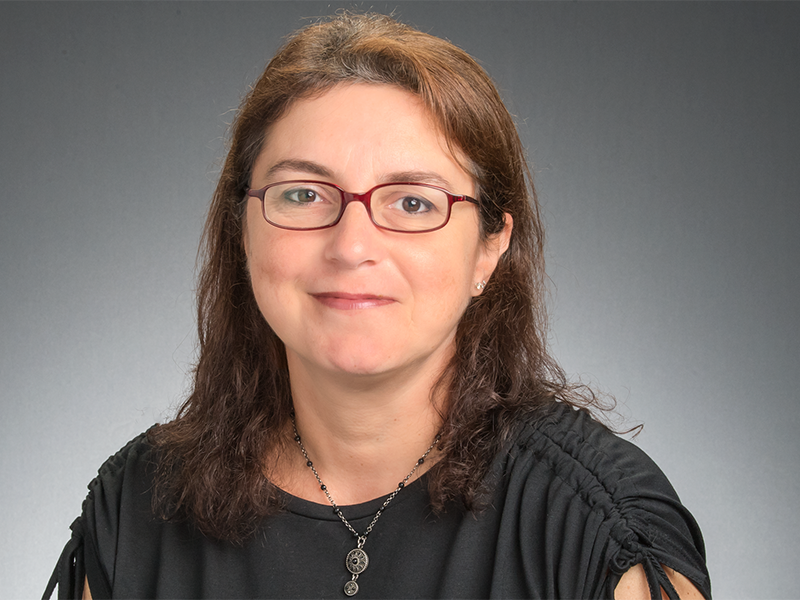College of Engineering Initiatives Among Those Awarded Manufacturing PA Grants
The Department of Community and Economic Development (DCED) recently announced the approval of more than $2.8 million in grants through the Manufacturing PA initiative. The 43 projects receiving funding—including three at Villanova University—will spur new technologies and processes in the manufacturing sector, according to a press release.
“Manufacturing PA allows for collaboration between incredible minds and incredible manufacturing companies,” DCED Secretary Dennis Davin said. “These partnerships engage Pennsylvania’s educational facilities and the business sector across the commonwealth to position our state for continued manufacturing innovation and success.”
The approved projects are part of Manufacturing PA’s fellowship program, which unites the commonwealth’s best and brightest graduate and undergraduate students and their faculty advisors with local manufacturers. Once paired, the students embark on research projects to develop new technologies and advance innovation statewide.
Villanova’s College of Engineering was awarded funding for the following:

Smart Brain Imager
Dr. Meltem Izzetoglu, Assistant Professor of Electrical and Computer Engineering, and Infrascan, Inc. a medical technology manufacturer in Philadelphia. $42,484.
Current smart health devices can conveniently and efficiently monitor various physiological signals from the body such as heart rate, temperature and blood pressure. Although it is one of the most vital organs, monitoring of the brain both physiologically and functionally in everyday and everywhere settings remains a challenge. This is partially because, until recently, existing neuromonitoring methods based on electrophysiology or magnetic resonance imaging would not allow wearable, battery operated, wireless, easy to use designs that can be reliably deployed in mobile, real-life environments. This collaborative project aims to design, develop and manufacture a universal, comfortable, durable, affordable and reliable platform, based upon functional near infrared spectroscopy (fNIRS) technology, that is miniaturized, fully wireless and app-operable, which can accelerate cognitive health monitoring.
Wetting of Binder Solution on Porous Bed of Microparticles
Mechanical Engineering Assistant Professor Dr. Bo Li and Associate Professor Dr. Qianhong Wu, and ExOne, a binder jet 3D printing technology company in North Huntingdon, PA. $69,993

Dr. Bo Li

Dr. Qianhong Wu
ExOne’s binder jetting technology is a disruptive method of 3D printing in which an industrial printhead deposits a liquid binder onto a thin layer of powdered particles, layer by layer, until an object is formed. While binder jetting has promise as a production technology, each powdered material has its own characteristics, and particles that have porous surfaces are more difficult to binder jet together than those with smooth surfaces. Through this project, Villanova will investigate how to best wet porous particles with binder and generate guidelines or parameters for this form of 3D printing.
The project seeks to quantify the binder-particle interaction that occurs so that end users can develop optimal process settings for specific materials. This, in turn, will result in significant cost savings (less printer time, less material wasted) and enable new products to reach the market faster. Learn more.

Dr. Rosalind Wynne
Manufacturing Process, Assembly and System Yield Optimization for Microelectromechanical Systems Devices
Dr. Rosalind Wynne, Associate Professor of Electrical and Computer Engineering and Avo Photonics, Inc., a photonics-based technology company with a global client base that manufactures optoelectronic solutions and products in Horsham, PA. $38,707
Global market outlooks for microelectromechanical systems (MEMS) —micrometer-scale devices that integrate optical, electrical and mechanical elements —are predicted to grow from $48.74 billion in 2018 to $122.83 billion by 2026. This technology impacts smart consumer electronics including wearable devices like Apple watches, IoT Amazon Alexa towers, and collision avoidance sensors in the automotive sector. Lack of standardized fabrication processes in these devices, however, leads to reduced product performance and life spans.
This project will take advantage of the existing decade-long partnership Dr. Wynne has established with Avo Photonics President Dr. Joseph Dallas ‘85 CLAS and CFO Kim Wheeler ‘88 VSB to focus on optimizing MEMS fabrication, assembly and packaging. Successful process refinement will bolster Avo market share to support its anticipated 25% workforce expansion in the next few years, generating more Philadelphia jobs while preparing graduate students to join the PA manufacturing workforce.
This research will be conducted in the Laboratory for Lightwave Devices under the auspices of the Center for Advanced Communications.
